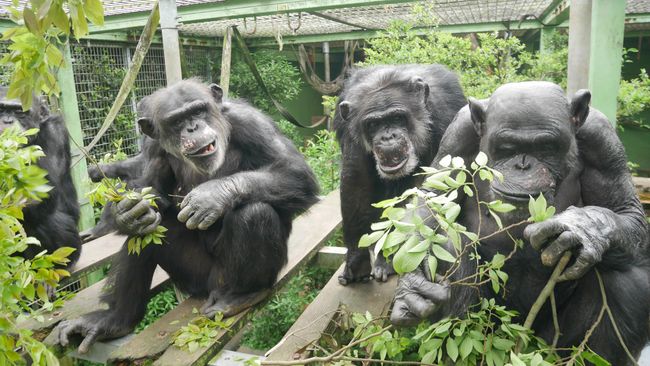'Contagious' peeing may have deep evolutionary roots, chimp study suggests [View all]
People often go to the bathroom in groups, and according to new research chimpanzees do the same, possibly to strengthen group social bonds.

Chimpanzees tend to pee when others in their group do, in a phenomenon scientists have dubbed "contagious urination." Because groups of people often go to the bathroom together too, and chimpanzees are our' closest living relatives, this social behavior could be traced back to our common ancestor, researchers said.
"In humans, we know that our decision to urinate is influenced by social contexts that lead us to urinate simultaneously with others, and that this simultaneous urination could also promote further social bonding," study co-author Shinya Yamamoto, a wildlife researcher at Kyoto University, told Live Science in an email. "Our study with chimpanzees clearly shows that they share some similarities in this phenomenon, suggesting the deep evolutionary origin of contagious urination."
The team decided to study the behavior after noticing that a group of chimpanzees at a zoo tended to urinate at about the same time, and wondered whether it could be similar to contagious yawning, which has been observed in other primates and wolves. For the study, published Monday (Jan. 20) in the journal Current Biology, researchers observed 20 chimpanzees in captivity at the Kumamoto Sanctuary in Japan for more than 600 hours.
They found that when one chimpanzee in the group peed, others were more likely to follow. The researchers recorded the number of urinations that occurred within 60 seconds of one another, and then compared these data with randomized computer simulations. The study found that this contagious urination behavior increased with physical proximity, so chimpanzees seeing another chimpanzee close to them peeing were more likely to follow suit.
https://www.livescience.com/animals/land-mammals/contagious-peeing-may-have-deep-evolutionary-roots-chimp-study-suggests
